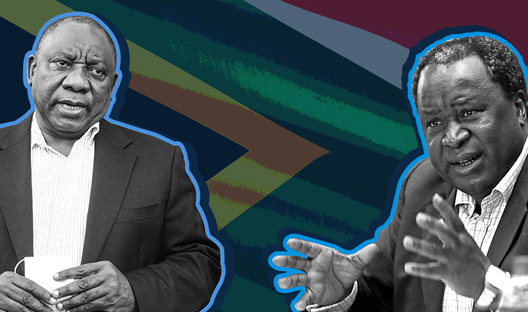Receive Focus insights straight to your inbox
PODCAST: Annabel Bishop in discussion with Lindsay Williams
Looking ahead in H1 2019
This year’s State of the Nation Address (SONA) will be President Ramaphosa’s second, and will allow him to reflect on what has been achieved in the past year. He will likely highlight the success of the Investment Summit in the second half of last year, and the level of new committed fixed investment to SA.
The focus will remain on the imperative to create more jobs, strengthen economic growth and create a strong, capable state, with feedback likely on those areas in what is a general election year. The date of the general election is expected to be in May, but the exact date is expected to be announced in the SONA tonight, from 7pm SA time.
The elimination of corruption and cronyism and strengthening of democracy will remain key rallying calls, while inclusive growth, transformation, the empowerment of youth and women, and social welfare support will likely be paramount in the address, as will be good governance of SOEs.
The focus will remain on the imperative to create more jobs, strengthen economic growth and create a strong, capable state.
The SONA is expected to focus on a number of key SOEs under financial pressure, with a formal announcement likely on Eskom’s expected restructuring into three companies namely generation, transmission and control of the grid, with semi-privatization potentially of the first two. The state is likely to provide further financial support to Eskom in the meantime.

Get all Investec's insights on the latest Budget Speech and SONA
Our economists, tax experts, personal finance and investment experts unpack what the latest fiscal measures mean for income, savings and daily expenses of individuals and businesses.
SA is a low growth economy with severe constraints in its finances, but significant potential for substantially faster growth and an upwards revision in its credit ratings. However, a number of key risks exist. The SONA will likely outline this as well, highlighting the need for economic recovery and giving details on progress made with the ESRP (Economic Stimulus and Recovery Plan).
Job creation in tourism accelerated in SA, from 2014 to 2017.
Government guarantees to key SOEs high level of debt, given the weakened state of government finances, is a key downwards pressure on SA’s credit ratings. Besides restructuring Eskom and partial privatisation of transmission and generation, reduction in staff costs and higher tariffs are also likely but will be unpalatable to various sectors.
Renewables
Substantial potential for growth and employment exists in the renewable energy generation space. SA is land-, wind- and solar-resources rich, representing substantial investment opportunities, including renewable energy-intensive industries. Private generation of electricity for sale on the national grid is likely to become more palatable for government.
The world is increasingly moving in the direction of renewable energy generated electricity, particularly wind and solar, which make up a very small percent for SA currently. South Africa’s IRP (Integrated Resource Plan) details the increasing mix needed for renewables, particularly given their relatively more labour-intensive nature.
The move towards clean energy globally means funding for coal-fired power stations is more difficult to obtain. As technology advances at an increasingly rapid rate, the infrastructure costs of renewable energy generation decline, making it increasingly affordable, particularly for new builds. Tech advances also increase the security of supply.
The world is increasingly moving towards renewable energy generated electricity, particularly wind and solar, which currently make up a very small per cent for SA.
The formal unemployment rate is close to 30%, versus the 21.3% reached towards the end of the last decade. South Africa has a high youth unemployment rate, of around 50%, with the informal unemployment rate close to 40%. Besides renewable energy, the tourism industry is also labour intensive.
Tourism
SA’s tourism policy includes changes to SA’s visa regime, including highly skilled individuals. Job creation in tourism has been resilient to SA’s weak economy, a key generator of new jobs. There are a rising number of foreign visitor arrivals per annum, with rand depreciation over the years lowering costs for many.
South Africa’s southern hemispheres summer and attractive destinations contrast well with northern hemisphere winters, particularly SA’s international standard of many resorts/hotels. Job creation in tourism accelerated in SA, from 2014 to 2017 tourism created 64 000 jobs, exceeding the performance of the industrial sector.
The Budget on 20 February is likely to provide the detail on Eskom and other key SOE financial support from government. It is unlikely to see a marked departure from the 2018 MTBPS, but a further hike in the top marginal tax rate is a possibility and some switching in expenditure priority in line with SONA objectives, but no drop in debt forecasts.
Repo rate and Moody's
We continue to expect no change in SA’s repo rate in the first half of this year. However, this will be heavily dependent on FOMC communications, with FOMC meetings on 20 March, 1 May and 19 June in H1.19, all of which could cause volatility in the domestic currency if they prove not to have a dovish tone as expected.
Moody’s is scheduled to deliver its country ratings review of SA on 29 March, post the Budget. With little fiscal consolidation or projected improvement over the longer-term, SA is likely to see its outlook on its Moody’s dual long-term (local and foreign currency) credit rating drop from stable to negative this year, if not in March then at the next review in H2.19.
Also read: SA down(graded) but not out
Also in H1.19, Nersa is expected to announce multi-year electricity tariff increases. Eskom’s additional request for a 17.1% tariff hike this year (15.4% and 15.5% for the next two years), is unlikely to be approved (around 5% is likely instead). A number of mines have indicated either severe job losses or even closures on such high tariff increases.
In summary:
- Weak economic growth persists
- Income produced by households is mostly spent
- Government finances have deteriorated
- Sentiment is expected to improve materially post General Election
- Corporates are not essentially saving more
- Trade account shifts to surplus on weaker imports
- Rand is driven by global and domestic risk factors
- SOEs finances represent a key major risk to SA
- Inflation largely runs within the 3-6% target band
- Markets expect flat 2019 SA and US interest rates
Risks and opportunities:
- Eskom risk hangs over economy and credit rating
- SA has vast competitive potential in renewables
- Moody’s likely to drop outlook to negative this year
- Weak institutions lower competitiveness, growth
- SA key strengths will help drive growth
- SA achieved A grade ratings before, and can again
- Land reform is ongoing but lack of clarity on EWC
- Mining sector dependent on policies, costs, prices
- Major tourism opportunities, a youthful population
About the author

Annabel Bishop
Chief Economist of Investec Ltd
Annabel holds an MCom Cum Laude (Economics and econometrics) and has worked in the macroeconomic, risk, financial market and econometric fields, among others, for around 25 years. Working in the economic field at Investec, Annabel heads up a team, which focusses on the macroeconomic, financial market and global impact on the domestic environment. She authors a wide range of in-house and external articles published both abroad and in South Africa.
Subscribe to Investec's podcasts on market and economy moves

Listen to regular interviews with experts from across the Investec group. Our channel is accessible wherever you currently listen to your podcasts.

Listen to each podcast individually or subscribe to get new episodes as they become available.




